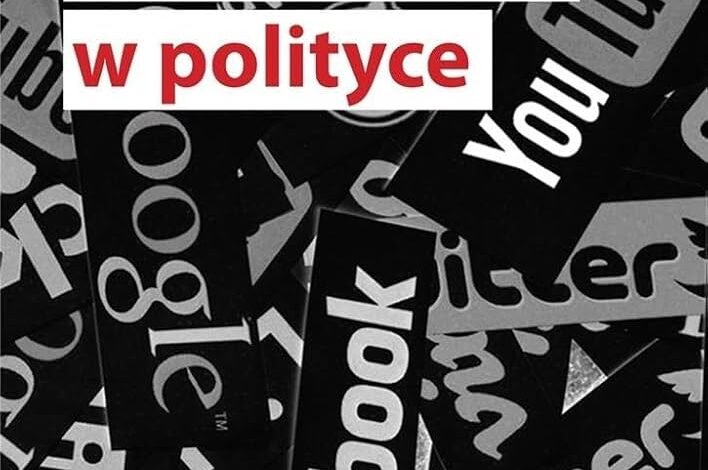W Polityce: Unveiling the Hidden Dynamics of Modern Politics

Politics shapes our world. It affects daily lives and the future of nations.
“W Polityce” delves into the complex world of politics. This blog will explore key political events, decisions, and their impacts. Understanding politics can be challenging, but it’s essential. By breaking down intricate topics, we aim to make politics accessible. You will find insights on political processes, current affairs, and historical contexts.
Whether you are new to politics or a seasoned follower, this blog offers valuable perspectives. Join us as we navigate the ever-changing landscape of politics.
Introduction To Modern Politics
Modern politics is a complex and dynamic field. It shapes the world we live in today. Understanding its roots and current significance is key. This section will guide you through the historical context and contemporary significance of modern politics.
Historical Context
Modern politics has evolved over centuries. The roots can be traced back to ancient civilizations. Greek city-states introduced the concept of democracy. Roman Republic contributed with ideas of governance and law. These early forms laid the foundation.
In the Middle Ages, feudal systems dominated Europe. Power was decentralized and held by local lords. The Renaissance brought a shift. Thinkers like Machiavelli and Hobbes discussed statecraft and power. Their works influenced political thought deeply.
The Enlightenment era marked a turning point. Philosophers like Locke and Rousseau emphasized individual rights and social contracts. These ideas inspired revolutions. The American and French Revolutions, for instance, redefined governance. They promoted liberty, equality, and fraternity.
Contemporary Significance
Today’s political landscape is diverse. It reflects centuries of evolution and change. Modern politics impacts every aspect of our lives. It affects the economy, social justice, and international relations.
Democracy is a common form of governance today. Countries like the United States and India hold regular elections. Citizens have a voice in their governments. This participation shapes policies and leadership.
Globalization has added new dimensions. International organizations like the United Nations play key roles. They address global issues like climate change and human rights. Cooperation among nations is essential.
Technology also influences modern politics. Social media platforms like Twitter and Facebook are powerful tools. They spread information quickly. Politicians use them to connect with the public. This has changed how campaigns and governance work.
Understanding these elements is crucial. It helps us navigate the political landscape. It empowers us as informed citizens.
Key Political Theories
Understanding key political theories helps us grasp the foundations of modern politics. These theories form the backbone of political thought and influence policies worldwide. Here, we explore three major political theories: Liberalism, Conservatism, and Socialism.
Liberalism
Liberalism advocates for individual freedoms and equal rights. Core principles include:
- Individual Liberty: People should have the freedom to pursue their own goals.
- Equality: Everyone deserves equal opportunities and rights.
- Democracy: Government should be by the people, for the people.
- Free Market: Economic freedom and minimal government interference in business.
Famous liberal thinkers include John Locke and John Stuart Mill. They argued that society functions best when individuals are free to act as they choose.
Conservatism
Conservatism values tradition, stability, and continuity. Key aspects are:
- Tradition: Respect for long-standing customs and institutions.
- Stability: Maintaining social order and resisting rapid change.
- Pragmatism: Practical solutions over ideological purity.
- Limited Government: Government should play a minimal role in daily life.
Edmund Burke is a well-known conservative thinker. He stressed the importance of preserving social order and institutions.
Socialism
Socialism emphasizes social ownership and economic equality. Fundamental principles include:
- Social Ownership: Resources and industries should be owned collectively.
- Economic Equality: Reducing the gap between the rich and poor.
- Social Welfare: Providing basic needs for all citizens.
- Class Struggle: Addressing conflicts between different social classes.
Karl Marx is one of socialism’s most influential figures. He believed that capitalism leads to inequality and that socialism could create a fairer society.
These political theories shape our world and influence our governments. Understanding them helps us engage more deeply with current political debates.
Influential Political Figures
Influential political figures shape the course of history. They leave lasting impacts on societies and cultures. In this blog post, we explore key individuals in Polish politics. These figures have made significant contributions. We’ll look at both historical leaders and modern influencers.
Historical Leaders
Historical leaders in Poland have played crucial roles. They have led the nation through difficult times. One such leader was Józef Piłsudski. He was a statesman and a military leader. Piłsudski is known for his fight for Polish independence. His leadership helped shape modern Poland.
Another important figure is Lech Wałęsa. He was a key figure in the Solidarity movement. This movement led to the fall of communism in Poland. Wałęsa’s efforts earned him the Nobel Peace Prize. His legacy remains significant in Polish history.
Modern Influencers
Modern influencers continue to shape Polish politics. One prominent figure is Andrzej Duda. He has been the President of Poland since 2015. Duda is known for his conservative policies. His leadership style has a strong impact on current Polish politics.
Another modern influencer is Mateusz Morawiecki. He is the current Prime Minister of Poland. Morawiecki focuses on economic reforms and national security. His policies aim to strengthen Poland’s position in the European Union.
These influential political figures have left a mark on Poland. Their contributions continue to influence the country’s future. Understanding their roles helps us appreciate the political landscape of Poland.

Credit: www.amazon.com
Political Parties And Movements
The political scene in W Polityce is diverse and dynamic. It features a range of political parties and grassroots movements. Each plays a crucial role in shaping the country’s policies and governance.
Major Political Parties
W Polityce has several major political parties that influence national politics. These parties vary in ideology and policy priorities. The key players include:
| Party Name | Ideology | Key Policies |
|---|---|---|
| Party A | Conservative |
|
| Party B | Liberal |
|
| Party C | Centrist |
|
Grassroots Movements
Grassroots movements in W Polityce are powerful. They often emerge from the communities and seek to address specific issues. These movements can influence policies and bring about significant changes.
Some of the notable grassroots movements include:
- Movement for Environmental Justice: Advocates for sustainable practices and climate action.
- Social Equity Initiative: Works towards reducing income inequality and promoting social justice.
- Democracy Now: Focuses on electoral reforms and increasing voter participation.
These movements play a key role in shaping public opinion and policy direction. They represent the voice of the people and ensure that their concerns are heard.
Media’s Role In Politics
The media plays a critical role in shaping political landscapes. It informs the public, influences opinions, and holds leaders accountable. This section explores the influence of both traditional media and social media on politics.
Traditional Media
Traditional media includes newspapers, television, and radio. These sources have been trusted for decades. They provide in-depth analysis and comprehensive coverage of political events.
Newspapers offer detailed reports and editorial opinions. They shape public discourse and influence voters’ decisions. Television and radio reach a broad audience with daily news updates. Political debates and interviews on these platforms help citizens understand candidates and policies.
Social Media Impact
Social media has transformed political communication. Platforms like Facebook, Twitter, and Instagram allow direct interaction between leaders and the public.
Politicians use these platforms to share their views and gather support. Citizens express their opinions and engage in debates. This direct communication fosters a more personal connection with politicians.
Social media also enables the rapid spread of information. News travels fast, and viral content can shape political narratives. However, it also poses risks of misinformation. Users need to verify sources and ensure accuracy.
Overall, social media has democratized political dialogue. It allows diverse voices to be heard and encourages active participation.

Credit: www.youtube.com
Political Campaign Strategies
Political campaigns are intricate and require careful planning. They involve various strategies to reach voters and gain their support. Understanding these strategies is essential for any successful campaign.
Marketing Tactics
Marketing tactics play a crucial role in political campaigns. Candidates use advertisements on TV, radio, and social media to spread their message. These ads often highlight key policies and values. They aim to create a positive image of the candidate.
Another effective tactic is email marketing. Campaigns send regular updates to supporters. These emails keep the audience informed and engaged. They often include calls to action like donations or volunteering.
Public Engagement
Public engagement is vital in political campaigns. Candidates need to connect with voters personally. Town hall meetings are one way to do this. These events allow candidates to hear concerns directly from the public.
Door-to-door canvassing is another method. Volunteers visit homes to talk about the candidate and their policies. This direct approach can be very persuasive.
Social media also plays a significant role in public engagement. Candidates use platforms like Twitter and Facebook to interact with voters. They can respond to questions and share their views. This helps build a strong relationship with the electorate.
International Relations
International relations shape the world we live in. Understanding these dynamics is key for political insight. This section delves into diplomatic policies and global alliances. Both are crucial for a nation’s standing on the global stage.
Diplomatic Policies
Diplomatic policies guide a nation’s foreign interactions. These policies include treaties, trade agreements, and conflict resolutions. Nations use diplomacy to build relationships. Diplomacy helps prevent wars. It also promotes economic ties. Here are some elements of diplomatic policies:
- Negotiation: Countries discuss terms to reach an agreement.
- Ambassadorship: Appointing representatives to other nations.
- Sanctions: Imposing penalties on nations to enforce international law.
Effective diplomatic policies can lead to strong international partnerships. They also improve a nation’s global image.
Global Alliances
Global alliances are partnerships between countries. These alliances often focus on security, economics, or politics. Nations form alliances to strengthen their position in the world. Some key global alliances include:
| Alliance | Purpose |
|---|---|
| NATO | Collective defense and security |
| EU | Economic and political union |
| UN | International peace and cooperation |
Alliances can enhance a nation’s influence. They offer mutual support in times of need. Strong alliances often lead to global stability.

Credit: www.ceeol.com
Future Of Politics
The future of politics is evolving quickly. Technology and societal changes shape new landscapes. This transformation impacts everyone. Leaders must adapt to these changes. They must understand the advancements and challenges ahead.
Technological Advancements
Technological advancements are reshaping politics. Digital tools make communication easier. Politicians use social media to reach voters. They can share ideas and gather feedback quickly. This interaction changes the traditional political landscape.
Artificial intelligence (AI) plays a role too. AI can analyze voter data. It helps in understanding voter behavior. Politicians use this data to make informed decisions. This improves their strategies and campaigns.
| Technology | Impact |
|---|---|
| Social Media | Direct communication with voters |
| AI | Data analysis for better decisions |
Evolving Political Landscapes
Political landscapes are evolving. New issues arise. Climate change and global health are key topics. These issues require new policies and actions. Leaders must address these challenges effectively.
Globalization influences politics too. Countries are more connected. Decisions in one country affect others. International cooperation becomes essential. Leaders must work together for global solutions.
Political engagement is changing. People demand transparency and accountability. They want to be part of the decision-making process. Leaders must listen to their constituents. They must involve them in political discussions.
- Climate change
- Global health
- Transparency
- Accountability
The future of politics is dynamic. Technological advancements and evolving landscapes play vital roles. Leaders must stay informed and adapt. This ensures they meet the needs of their people.
Frequently Asked Questions
What Is “w Polityce”?
“W Polityce” is a prominent Polish political news website. It provides in-depth analysis, opinions, and the latest updates on political events.
Who Writes For “w Polityce”?
“W Polityce” features articles from experienced journalists and political analysts. They offer expert insights and perspectives on current political issues.
How Often Is “w Polityce” Updated?
“W Polityce” is updated daily with fresh content. Readers can expect the latest news and analyses regularly.
Can I Subscribe To “w Polityce”?
Yes, you can subscribe to “W Polityce. ” Subscribing ensures you receive updates and exclusive content directly in your inbox.
Conclusion
The landscape of politics is complex and ever-changing. Staying informed is crucial. It helps us understand decisions affecting our lives. Engage in discussions, read reliable sources, and form your own opinions. Your voice matters in shaping the future. Stay curious and ask questions.
Knowledge empowers us to participate actively. Politics isn’t just for experts; it’s for everyone. Let’s all strive to stay educated and involved. Your involvement can make a difference. Thank you for reading and caring about our shared political world.




